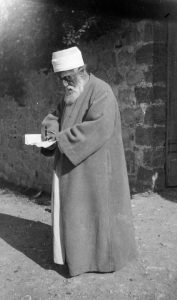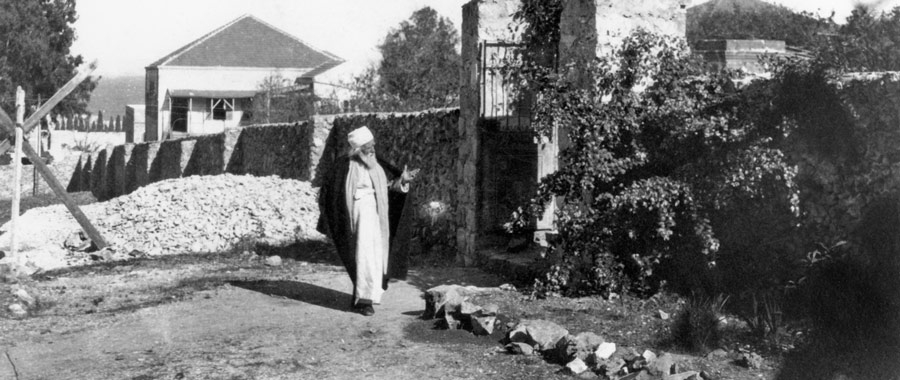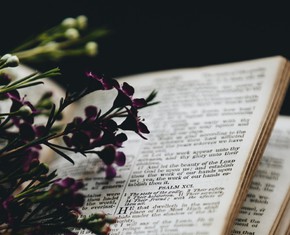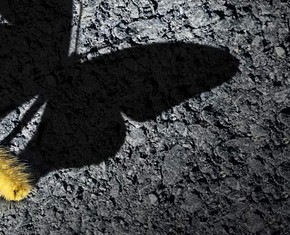The views expressed in our content reflect individual perspectives and do not represent the authoritative views of the Baha'i Faith.
When someone we love passes away, we can’t help asking ourselves, “Has the love this wonderful person brought into the world departed forever?”
Grief works that way. It can leave us bereft, in darkness, unsure if we can face the future. Grief, of course, comes directly from a sense that we have permanently lost a loved one.
But pure love, the Baha’i teachings reassure us, never dies: “The greatest gift of man is universal love – that magnet which renders existence eternal.” – Abdu’l-Baha, Divine Philosophy, p. 111.
Abdu’l-Baha, the Center of Baha’u’llah’s covenant and the leader of the world’s Baha’is after Baha’u’llah’s passing, wrote and spoke extensively about love:
Know thou of a certainty that Love is the secret of God’s holy Dispensation, the manifestation of the All-Merciful, the fountain of spiritual outpourings. Love is heaven’s kindly light, the Holy Spirit’s eternal breath that vivifieth the human soul. Love is the cause of God’s revelation unto man, the vital bond inherent, in accordance with the divine creation, in the realities of things. Love is the one means that ensureth true felicity both in this world and the next. Love is the light that guideth in darkness, the living link that uniteth God with man, that assureth the progress of every illumined soul. Love is the most great law that ruleth this mighty and heavenly cycle, the unique power that bindeth together the divers elements of this material world, the supreme magnetic force that directeth the movements of the spheres in the celestial realms. Love revealeth with unfailing and limitless power the mysteries latent in the universe. – Selections from the Writings of Abdu’l-Baha, p. 27.
Abdu’l-Baha defined four kinds of love, and said that:
The first is the love that flows from God to man; it consists of the inexhaustible graces, the Divine effulgence and heavenly illumination. Through this love the world of being receives life. Through this love man is endowed with physical existence, until, through the breath of the Holy Spirit – this same love – he receives eternal life and becomes the image of the Living God. This love is the origin of all the love in the world of creation. – Abdu’l-Baha, Paris Talks, p. 181.

Every year Baha’is express their love for the Central Figures of the Faith by solemnly observing their passing from this world: the martyrdom of the Bab on July 9th; the ascension of Baha’u’llah on May 29th; and tomorrow, November 28th, the ascension of Abdu’l-Baha. What does that mean in terms of the Baha’i teachings about eternal life?
When he died 98 years ago in 1921, Abdu’l-Baha, often lovingly referred to as “the Master” or the “perfect exemplar” of what it means to be a Baha’i, left behind a legacy of great service and lifelong devotion to the Baha’i ideals of peace, love and unity.
Exiled from his home country as a child and imprisoned for forty years, Abdu’l-Baha then travelled the world to bring his father’s message of the oneness of humanity to people everywhere. Hailed as a global ambassador of peace, loved and revered around the world for his humility, his selflessness and his advocacy for peace and unity, knighted by the British Empire for his work feeding the poor and averting famine in Palestine during World War I, Abdu’l-Baha passed into the next world at the age of 77 after living a life of humble service to humanity.
His grandson Shoghi Effendi, who Abdu’l-Baha appointed as the Guardian of the Baha’i Faith, later summarized the Master’s final earthly years, during which Abdu’l-Baha asked the Baha’is not to grieve at his passing:
At the close of His strenuous Western tours, which had called forth the last ounce of His ebbing strength, He had written: “Friends, the time is coming when I shall be no longer with you. I have done all that could be done. I have served the Cause of Baha’u’llah to the utmost of My ability. I have labored night and day all the years of My life. O how I long to see the believers shouldering the responsibilities of the Cause! … My days are numbered, and save this there remains none other joy for me.” Several years before He had thus alluded to His passing: “O ye My faithful loved ones! Should at any time afflicting events come to pass in the Holy Land, never feel disturbed or agitated. Fear not, neither grieve. For whatsoever thing happeneth will cause the Word of God to be exalted, and His Divine fragrances to be diffused.” And again: “Remember, whether or not I be on earth, My presence will be with you always.” “Regard not the person of Abdu’l-Baha,” He thus counselled His friends in one of His last Tablets, “for He will eventually take His leave of you all; nay, fix your gaze upon the Word of God … The loved ones of God must arise with such steadfastness that should, in one moment, hundreds of souls even as Abdu’l-Baha Himself be made a target for the darts of woe, nothing whatsoever shall affect or lessen their … service to the Cause of God.” – Shoghi Effendi, God Passes By, p. 309.
But grieve they did. Abdu’l-Baha’s funeral brought together even the famously fractious and religiously diverse Holy Land, drawing mourners and admirers from every Faith, race, age, background and class. A great sense of loss and grief gripped those souls, and its intensity united them. Abdu’l-Baha’s unprecedented impact, and the outpouring of emotion that accompanied it, resulted in a funeral the likes of which no one had ever seen.
World leaders sent letters and telegrams. Winston Churchill telegraphed immediately to “convey to the Baha’i Community, on behalf of His Majesty’s Government, their sympathy and condolence.” But Abdu’l-Baha was also mourned by the very poorest residents of the Holy Land, who he had loved, supported, fed and helped for decades.
His simple funeral service and internment took place on Tuesday, November 29th, 1921, just one day after his passing, on the slope of Mount Carmel in Palestine, now Israel. Thousands upon thousands of people walked up the mountain, “A great throng,” the British High Commissioner of Palestine wrote, “had gathered together, sorrowing for His death, but rejoicing also for His life.”
The coffin containing the remains of Abdu’l-Baha was borne to its last resting-place on the shoulders of His loved ones …. The long train of mourners, amid the sobs and moans of many a grief-stricken heart, wended its slow way up the slopes of Mt. Carmel to the Mausoleum of the Bab … Close to the eastern entrance of the Shrine, the sacred casket was placed upon a plain table, and, in the presence of that vast concourse, nine speakers, who represented the Muslim, the Jewish and Christian Faiths … delivered their several funeral orations. The coffin was then removed to one of the chambers of the Shrine [of the Bab], and there lowered, sadly and reverently, to its last resting-place in a vault adjoining that in which were laid the remains of the Bab. – Ibid., p. 310.
The Governor of Jerusalem said “I have never known a more united expression of regret and respect than was called forth by the utter simplicity of the ceremony.” Media observers estimated attendance at more than ten thousand people: Arabs, Turks, Persians, Kurds, Armenians, Europeans, Americans, Jews, Catholics, Orthodox Christians, Anglicans, Muslims, Druze and Baha’is, government officials and clergy and the wealthiest and the poorest, all there to show their deep respect for the man one major newspaper called “The Personification of Humanitarianism.” Mourning, crying, moaning, and lamenting, the huge crowd collectively felt such a deep sense of loss that many attendees struggled mightily with their emotions.
They mourned because they had lost someone so unique and so humble, so wise and selfless and dedicated to the service of others, that they feared they had lost something much more than one human being – someone irreplaceable, someone enormously precious, not just a man but a truly heroic and transcendent soul.
Many in that gigantic crowd literally owed their lives to Abdu’l-Baha, either from the generous donations he had given the poor for decades or from the grain he had stored to feed the starving people of Palestine during what they called “The Great Woe,” the long World War that cut their country off from food supplies.
Abdu’l-Baha’s passing, and his funeral the very next day, produced one of the most spontaneous, profound and united public outpourings of affection, warmth and tenderness the Holy Land had ever seen. Abdu’l-Baha’s ascension to the next world not only demonstrated the reality of the Baha’i teaching that love lasts eternally, but it brought to mind the kind advice he had given to others who lost loved ones:
The inscrutable divine wisdom underlieth such heart-rending occurrences. It is as if a kind gardener transferreth a fresh and tender shrub from a confined place to a wide open area. This transfer is not the cause of the withering, the lessening or the destruction of that shrub; nay, on the contrary, it maketh it to grow and thrive, acquire freshness and delicacy, become green and bear fruit. This hidden secret is well known to the gardener, but those souls who are unaware of this bounty suppose that the gardener, in his anger and wrath, hath uprooted the shrub. Yet to those who are aware, this concealed fact is manifest, and this predestined decree is considered a bounty. Do not feel grieved or disconsolate, therefore, at the ascension of that bird of faithfulness; nay, under all circumstances pray for that youth, supplicating for him forgiveness and the elevation of his station. – Abdu’l-Baha, Selections from the Writings of Abdu’l-Baha, pp. 199-200.
















Comments
Sign in or create an account
Continue with Googleor